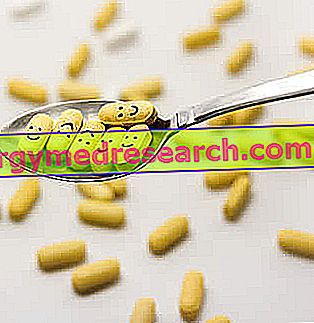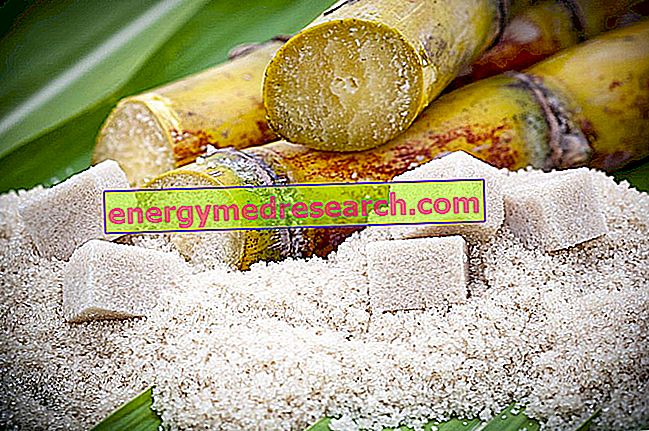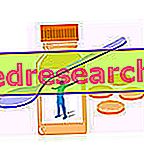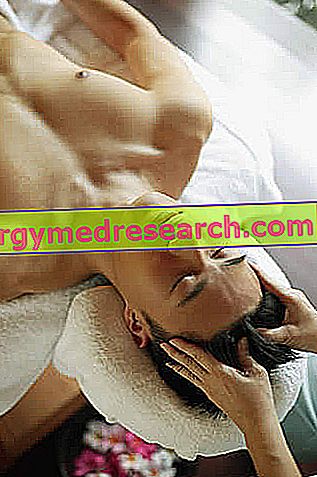Anxiety is a psychological state characterized by the perception of an excessive fear (or rationally unjustified) towards a stimulus or a situation (real or elaborate) responsible for the production of stress.

Anxiety can be primary or secondary to other medical conditions, especially psychiatric conditions.
When it is frequent, persistent and affects the lifestyle of the person, we speak of "anxiety disorder" (generalized, panic, social or specific phobia, obsessive-compulsive disorder and post-traumatic stress disorder).
What to do
When anxiety states constitute the antechamber of a more serious or chronic problem, it is necessary to prevent them or take a specific medical pathway.
- The first intervention is to contact the primary care physician, who, if he deems it appropriate (through a medical history), will administer a brief and light anxiolytic therapy or will direct the person to a psychiatrist (for a specific diagnosis and a more targeted pharmacological therapy) .
- Those who do not willingly accept the administration of drugs can apply directly to a psychologist-psychotherapist. After identifying the triggering cause, he will determine which psycho-therapy to use.
Preventing aggravation or chronic anxiety may be necessary by contacting your doctor IMMEDIATELY. The factors that suggest this solution are:
- Familiarity with anxiety disorders.
- Psychiatric diseases (for example self-injury).
- Alcohol abuse.
- Use of drugs (especially intravenous).
- Depression.
Who does not fall into the above categories, does not consider the use of drugs necessary, does not willingly lend himself to psychological therapy and considers that it can be a purely biochemical condition, he can request a blood test.
The investigation in question will reveal the concentrations of specific enzymes (such as Ache, Bche etc.) and will put them in relation with age, body mass index etc. to assess their normality.
What NOT to do
A state of severe anxiety, difficult to tolerate and able to change a person's habits, requires a conscious and mature attitude.
In particular, you should avoid:
- Hide it.
- Insert it in your custom.
- Try to cure them pharmacologically independently.
- Reduce it by using cheap psychotropics such as ethyl alcohol.
- Attempt alternative remedies that are potentially harmful or that hinder / delay medical diagnosis.
What to eat
Diet is not an effective remedy to combat anxiety disorders.
However, nutrition correlates with mood in different ways.
- On the one hand, hormones, neurotransmitters, enzymes and receptors that regulate the activation or suppression of the autonomic nervous system depend on the concentration of some nutrients. This means that the defect or excess of these molecules could modify the anxious state.
- On the other hand, mood can change eating habits. It is established that some emotional and psychological states can increase or decrease the desire to eat. Usually, anxiety helps to increase the volume of portions and meals. Those suffering from anxiety prefer crunchy, crumbly and salty foods.
NB . Anxiety falls within the symptomatic framework of eating disorders; in particular: binge eating desorder, bulimia, anorexia nervosa, grignotage and border line conditions etc.
The molecule that has the greatest effect on the anxious state (but also on depression) is serotonin. It is a neurotransmitter produced physiologically by the body. It is synthesized from tryptophan, an essential amino acid taken with food; however, certain foods also contain pure serotonin.
It must be specified that (contrary to depression) the link between serotonin and anxiety is not entirely known. The disorder can be triggered by excess but also by the defect of this neurotransmitter.
This means that, although not an independent remedy or cure, the amount of serotonin and tryptophan in the diet could affect the anxiety state. It is therefore necessary to consume the various food sources in the right quantities:
- Foods rich in serotonin:
- Cocoa and dark chocolate: 5-10g / day is enough.
- Walnuts: 4-5 walnuts a day are enough.
- Fruits: Kiwi, Pineapple, Cherries, Sour cherries, Tomatoes, Bananas, Plums: between fruit and vegetables you can easily reach 600-800g / day.
- Foods rich in tryptophan:
- Milk, yogurt and cheese: milk and yogurt even every day and up to 500ml / g in total. For the cheeses a couple of servings per week are sufficient; the amount varies according to the skimming.
- Griffonia: a legume used most frequently as a food supplement in dry extract.
What NOT to Eat
After specifying not to exceed with foods that contain serotonin and tryptophan, we list a list of foods that can worsen anxiety.
These contain one or more stimulating nervine molecules:
- Coffee, also ginseng: due to the presence of caffeine.
- Guarana: due to the presence of caffeine.
- Fermented teas: due to the presence of theophylline.
- Cocoa and chocolate: due to the presence of theobromine.
- Energy drinks: they contain cocktails of various stimulants.
- Alcoholic: due to the presence of ethyl alcohol which causes an immediate sensation of relaxation followed by a worsening of anxious symptoms.
Natural Cures and Remedies
Natural remedies for anxiety include:
- Psychological therapy: it can be considered a natural therapy. When hormonal alterations are secondary to emotional states (for example caused by: mourning, abandonment, loss of work, etc.), psychotherapy is certainly the only healing system. Medications can be complementary, as they help reduce the symptom; however, they do not act on the triggering cause. The methods are different but the choice is purely the responsibility of the therapist.
- Phytotherapy: based on the intake of plants capable of increasing relaxation levels and reducing stress levels, in particular: valerian, hawthorn, lemon balm and above all passion flower.
- Oligotherapy: based on the administration of minerals, in particular manganese and cobalt. This should be taken once a day for 3 weeks; after this it is reduced to 2-3 hires per week. Can be supplemented with magnesium.
- Gemmotherapy: based on the administration of gems, in particular: Ficus carica (fig) and Tilia tormentosa (lime).
- Aromatherapy: based on the inhalation (or cutaneous absorption) of neurosedative volatile essential oils, in particular: lavender, lemon balm, chamomile and bitter orange.
Pharmacological care
The pharmacological remedies for the treatment of anxiety are:
- Anxiolytics: buspirone
- Benzodiazepines: diazepam, alprazolam, lorazepam and clonazepam.
- Antidepressants (if depression is present).
- Antihistamines: hydroxyzine.
- Beta-blockers: propanol.
- Other anxiolytics-antipsychotics: meprobamate, pregablyn, paroxetine.
To learn more, read: Medications for the Treatment of Anxiety
Prevention
Anxiety disorders can be prevented only after the first onset and with awareness.
In particular, the person must be able to:
- Admit your tendency to anxiety and act accordingly.
- Recognize the situations and circumstances that can trigger or trigger the disorder, trying to avoid them.
All the suggestions mentioned in the previous paragraphs are useful for the prevention of anxiety, except for pharmacological and psychological therapy.
In particular, natural remedies are available.
Medical treatments
Besides pharmacological and psychological therapy, no other effective medical treatment is known as a remedy for anxiety.



